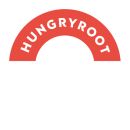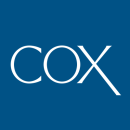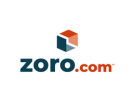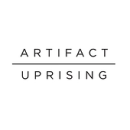If your Instagram feed is full of ads for things like denim jeans, linen bedsheets and artisanal snacks staged in front of pastel-colored backdrops, then you’re familiar with direct-to-consumer (DTC) brands.
Unlike so many brands of the past, DTC brands sell products directly to end users through their own e-commerce sites, cutting department stores and marketplaces out of the traditional retail process. Their marketing is often spotted on social media, subway platforms and podcasts.
What Is a Direct-to-Consumer (DTC) Brand?
DTC Brand Definition
Technically, the term direct-to-consumer describes a sales channel rather than a type of company — and it’s not even a new sales channel at that — but colloquially, DTC brands refer to companies that sell their own products exclusively or primarily through their own e-commerce shops.
Depending on who you talk to, the definition may be more specific than that. When Camille Baldwin, a brand strategist and entrepreneur who helped launch dozens of brands, thinks of the moniker “DTC,” she pictures companies that sell products online “using emotionally aspirational storytelling hyper-targeted to [consumers] through social ads with the goal of maximizing growth to return their venture-backed investment.”
“Now, that’s a very particular flavor of DTC,” she added. “I guess the short of it is: DTC is … a brand selling their goods under their own brand name, rather than the name of a retailer, like a department store.”
But since many so-called DTC brands now sell their products in third-party retail stores, while several legacy brands sell directly to consumers online now too, DTC is an imprecise label for the sort of brands we’re describing.
Some people prefer the term “digitally native brands” instead. And others are content calling them “Instagram brands,” according to Mark Johnson, director of internal brands at Boomn, an agency that operates a portfolio of DTC brands. Ultimately, he said, “it’s all semantics.”
DTC Brand History
Around the late 2000s to early 2010s, upstart brands in hyper-focused categories like Warby Parker, Everlane, Dollar Shave Club and Bonobos sprung up online to take advantage of the unprecedented access the internet gave them to customers.
Before, when brands sold their products through department stores, it was the department stores that had the relationships with customers — not the brands. So once brands were able to set up their own e-commerce sites and acquire their own customers through social ads, they could bypass the traditional “middlemen.”
Another big part of what differentiated DTC brands from incumbent retailers was their emphasis on providing premium customer experiences, Johnson said.
That often meant quick-to-respond customer support, personalized emails and delightful unboxing experiences with Instagrammable packaging. That’s all become table stakes for modern direct-to-consumer brands. But a decade ago, it was enough to cause waves.
DTC Brand Examples
- Allbirds
- Away
- Casper
- Chewy
- Dollar Shave Club
- Glossier
- Hims & Hers
- Rent the Runway
- Stitch Fix
- Warby Parker
DTC Brand Strategy
Going direct to the consumer gives brands a couple of key advantages.
First, DTC leads to better margins. At least in theory. By selling straight to customers through their websites — rather than selling to physical retailers at reduced wholesale prices — these brands save money, which allows them to spend a little extra on superior customer experience.
Second, DTC allows brands to collect customer data. By selling directly to individual consumers, they get access to information like email addresses and shopping preferences — data which they can use to encourage repeat purchases, fine-tune marketing and inform product decisions.
Direct-to-consumer brands experience challenges though. They have to go out and acquire customers themselves, rather than relying on the foot traffic places like Target, Walmart and Amazon bring in (which helps explain why most DTC brands eventually partner with such places).
In the early era of DTC brands, it was cheap and efficient to get customers through advertising on social media channels — Facebook and Instagram specifically. But in recent years, the cost of acquiring customers through social media has skyrocketed. So brands that previously relied on running paid ads on those channels are now forced to experiment with other tactics.
Top DTC Brands to Know
Whatever you want to call these brands, there’s no denying that they’ve disrupted and defined the past decade of retail. Here are some notable examples.
Hims started in 2017 as a men’s wellness brand specializing in pharmaceuticals targeting hair loss and erectile dysfunction; the women-focused part of the brand, Hers, launched in 2018. Hims & Hers let shoppers access a telehealth appointment with a doctor and buy prescription medication, shipped directly — and discreetly — to their homes. In 2021, the company went public in a $1.6 billion deal through a special-purpose acquisition company (SPAC).
The Farmer's Dog is a subscription-based pet care brand that sells “human-grade” dog food made of fresh, whole foods. The company works with pet owners to establish personalized nutrition plans that meet their dogs’ needs. Meals are frozen and delivered to customers in pre-portioned containers within days of being made.
Heralded as “the godfather” of direct-to-consumer brands, Bonobos is a menswear company that founders Andy Dunn and Brian Spaly launched online in 2007, promising better-fitting men’s pants and premium customer service. Eventually, Bonobos expanded its product offerings beyond pants and began selling in brick-and-mortar retail stores. In 2017, Walmart acquired Bonobos for $310 million.
Shein is a fast-fashion retailer popular with Gen-Z shoppers. It was founded in China in 2008, and in 2021 overtook Amazon as the most downloaded e-commerce shopping app. Its recent rise in popularity can be at least partly attributed to its affiliate and influencer marketing, which has made traction on TikTok, Instagram and YouTube.
Mixbook lets users create custom photo books, cards, calendars and other printed products using templates and personal photos. The company’s platform features a user-friendly interface and various customization options. Customers use Mixbook to create personalized gifts, memories and professional graphics.
This e-commerce startup arrived on the scene in 2017, selling its line of household items and everyday goods, each at a $3 price point. The company shut down its operations in 2020, after having raised nearly $300 million in total funding, but it has since been acquired for a relaunch and in 2021 raised $118 million in equity debt and financing.
Chewy is an online retailer specializing in pet food, toys and supplies. The company was founded in 2011, and just six years later, it was purchased by PetSmart for $3.35 billion, which was the largest e-commerce acquisition at the time. In 2019 it became a publicly traded company.
Hungryroot offers consumers a delivery service for groceries and ready-to-eat meals that align with users’ dietary needs, such as dairy-free, gluten-free and anti-inflammatory meals. Customers can start with Hungryroot by answering questions about their nutrition goals and food preferences to set up their personalized food plan.
Everlane became synonymous with the streamlined, minimalist wardrobe basics that helped define modern casualwear. Founded in 2010 by Jesse Farmer and Michael Preysman, the online retailer pioneered something unique for fashion brands: It gave shoppers information about its supply chains and showed them a cost breakdown of materials, labor, shipping and markups for each product. Everlane called this practice “radical transparency,” a phrase it trademarked, which has garnered some scrutiny since.
Outdoor Voices is an apparel brand that sells women’s activewear, mostly through its own website (though it has an offline retail presence too). The company was founded in 2014 by Tyler Haney, who, until 2020, was its chief executive officer. Outdoor Voices is known for its sticky Instagram presence (#Doingthings). It was once valued at $110 million and billed as “the next Lululemon.”
This DTC watch company was founded in 2013 by Jake Kassan and Kramer LaPlante. Initially launched as a crowdfunding campaign on Indiegogo, MVMT set out to make and sell affordable, minimalist watches for men (its product line now includes watches for women, as well as other accessories). In 2017, the company was acquired by The Movado Group (owner of Lacoste, Tommy Hilfiger and Hugo Boss) for $100 million.
Through Thrive Market’s online platform, members can order a variety of grocery products for delivery at exclusive, affordable prices. Its organic, non-GMO offerings include everything from supplements and cleaning products to meat, frozen meals, pet food and an array of pantry staples. In addition to providing consumers with goods from brands they already know, Thrive Market has a line of its own brands.
Jabra Enhance offers bluetooth-enabled hearing aids with 360-degree sounds capabilities, adaptability to different hearing environments and app-controlled adjustments. The company offers users a 100-day trial, along with consistent support from audiologists through remote consultations.
When Warby Parker launched in 2010, people had only bought eyeglasses at retail stores and optometrist offices — an arrangement the company was set on shaking up. On Warby Parker’s website, customers upload their prescription information and pick out a pair of glasses to be delivered. If customers want to try them on first, they can pick a handful of demo pairs, which Warby Parker ships for free. The NYC-based company operates many offline retail stores as well. In 2021 started trading on the New York Stock Exchange.
Cox Enterprises is a global conglomerate operating key subsidiaries in the media, automotive and telecommunications sectors. One of these, Cox Automotive, manages several well-known brands in the car buying and trading space including Kelley Blue Book and Dealer.com. On Autotrader.com, a car-shopping and buying marketplace, consumers can find cars for sale at nearby dealerships, look for private sellers or receive cash offers for their own vehicles.
Rent the Runway started in 2009 as an online rental platform offering designer clothing for women, shipped directly to their doors. A decade later, the company was valued at $1 billion. Customers now have the option of renting specific items for special occasions or purchasing used designer clothes. The retailer also operates brick-and-mortar stores in several U.S. cities. Rent the Runway was founded by Jennifer Hyman, who is the CEO, and Jennifer Fleiss.
Birchbox is a monthly subscription service that sends customers boxes of beauty and skincare product samples. The NYC-based company was founded in 2010 by Hayley Barna and Katia Beauchamp. In 2018, Viking Global Investors acquired a majority stake in Birchbox for $15 million. That same year, Birchbox made a deal with Walgreens to sell its products in some of the retailer’s physical stores.
Stitch Fix is a San Francisco-based startup that sells subscriptions of personally curated women’s clothing. New customers fill out sizing and style details, and Stitch Fix ships them monthly boxes of clothes to try on. The customer keeps what they wish to purchase and sends the rest back. Stitch Fix uses this data to improve its recommendation algorithm. The company, founded by Katrina Lake in 2011, had its initial public offering in 2017.
This NYC-based cosmetics company, now worth $1.8 billion after an $80 million Series E round in 2021, began in 2010 as a beauty blog called Into the Gloss, which racked up millions of monthly pageviews and cultivated a large, passionate community. In 2014, Emily Weiss, the founder and CEO, expanded the media operation into an online shop called Glossier, selling its own line of skincare and makeup products. It went on to open a few offline stores and several pop-up shops around the world, though its sales channels remain primarily digital.
Away is a travel company that makes modern, functionally designed luggage and travel accessories. The company was founded in 2015 by Warby Parker alums Steph Korey and Jen Rubio, the latter of whom was made CEO in 2021. Away raised $100 million at a $1.4 billion valuation in 2019, and, in 2020, it raised an additional $30 to $40 million.
Daily Harvest is an online meal delivery service offering a line of frozen soups, smoothies and bowls shipped directly to the doorsteps of health-conscious customers. Rachel Drori launched the company in 2015 and has since brought on investors like Serena Williams and Gwyneth Paltrow. It’s been rumored that the billion-dollar company plans to file to go public.
Allbirds is an apparel brand known for its machine washable wool sneakers, sustainable production and adoption rate among techies. Started in 2015 by former soccer player Tim Brown and engineer Joey Zwillinger, the company has attracted celebrity investors, such as actor Leonardo DiCaprio, and notable wearers, including former President Barack Obama. It went public in November 2021.
Dollar Shave Club launched in 2011 as a monthly subscription service for men’s razors. The company went viral with its irreverent YouTube video, in which Michael Dublin, founder and CEO, heralded the affordable, no-frills razors. Dollar Shave Club expanded its product line to include additional personal grooming products. In 2016, the company was acquired by Unilever, the multinational consumer goods corporation, for $1 billion.
Zoro is a B2B and B2C ecommerce company that allows users to shop for operations equipment and supplies. The marketplace platform offers everything from polishers to janitorial supplies to power transmissions. In addition to its Zoro Select products, the company carries brands including 3M, Rust-Oleum and Condor.
Billie is a subscription service that sells body care products — such as razors, lotion and body wash — aimed at Millennial and Gen Z women. The company, started in 2017 by Georgina Gooley and Jason Bravman, drew media attention by criticizing the “pink tax,” a term for the pricing markups often seen on grooming products marketed for women. Billie was acquired by Procter & Gamble in 2020 for an undisclosed amount, after having raised $35 million in venture funding during its lifetime.
GoodRX brings the DTC modality to prescription drugs and healthcare services by offering coupons that customers can use in lieu of insurance coverage. By accessing discounts for cash payments from pharma companies, lab testing sites and healthcare providers, then contracting to provide further coupon-based discounts, the company is able to deliver healthcare at a savings to the average consumer, whether or not they have insurance coverage.
Started in 2014, this NYC-based company sells oral care products like electric toothbrushes, flossers and mouthwash, and offers a clear-aligner service too. In 2018, Quip moved into traditional retail and could be spotted in Target stores. To date, the company has raised over $160 million in funding.
Founded in 2011, Chubbies is a men’s apparel company known for its shorts and swimwear. It grew a cult following by creating viral social media posts and recruiting fraternity brothers to be enthusiastic, word-of-mouth brand ambassadors. In 2021 Chubbies was acquired by Solo Stove, a company that makes fire pits, as part of a new portfolio of outdoor brands.
Golden Hippo leverages expertise in areas like branding, product development and customer service to support the establishment of D2C brands. The company says it’s responsible for building more than 20 brands across health, beauty and pet care, including names like ActivatedYou and Beverly Hills MD.
Casper was among the first bed-in-a-box startups to gain widespread popularity. Founded in 2014, it began shipping mattresses with generous return policies directly to customers’ doors and has since expanded its product line to include pillows, bedsheets and more. Casper went public in 2020, and two years later, the company was purchased by a private equity firm.
If you’re wondering why bright, whimsically patterned socks seem to be everywhere in recent years, you may have Happy Socks to thank. Started in 2008 in Stockholm, Sweden, Happy Socks makes and sells colorful socks and other apparel. The company began selling through its website, but eventually, its socks were distributed through its own brick-and-mortar locations, as well as in big-box retailers throughout the world. Palamon Capital Partners acquired a majority stake of Happy Socks in 2017, valuing the company at $81 million.
Through Artifact Uprising’s website, customers can order customizable products like albums, framed prints and calendars that feature their photos. Artifact Uprising has a variety of designs customers can choose from to fit a particular theme or to commemorate a specific occasion such as a wedding or birthday.

























